- Home
- Parnell Hall
3 Favor
3 Favor Read online
Praise for Parnell Hall’s mystery FAVOR
“A very funny, very smart mystery series.”
—Booklist
“Neat Jolts of action, comically downbeat narration ... and wisecrack dialogue”
—Kirkus Reviews
“Hilarious ... Pure entertainment”
—Publishers Weekly
“The primary pleasure in Favor—and it’s a big one—is in Hall’s entertaining telling of the story.”
—The Drood Review of Mystery
FAVOR
Parnell Hall
Copyright © 1988, 2011 by Parnell Hall
Published by Parnell Hall, eBook edition, 2011.
e-reads.com, 2001
ISBN:978-0-759218-54-3
Published by NAL-Onyx, 1989.
ISBN:0-451-40161-1
Orginally published by Donald I Fine, Inc., 1988.
ISBN:978-1-556110-96-2
All rights reserved. No part of this book may be reproduced in whole or in part without written permission from the author, except by reviewers who may quote brief excerpts in connection with a review in a newspaper, magazine, or electronic publication; nor may any part of this book be reproduced or transmitted in any form or by any means, electronic or mechanical, without permission in writing from the author.
ISBN (Kindle): 978-1-936441-42-6
ISBN (ePub): 978-1-936441-43-3
Cover design: Michael Fusco Design | michaelfuscodesign.com
For Jim and Franny
Table of Contents
Chapter 1
Chapter 2
Chapter 3
Chapter 4
Chapter 5
Chapter 6
Chapter 7
Chapter 8
Chapter 9
Chapter 10
Chapter 11
Chapter 12
Chapter 13
Chapter 14
Chapter 15
Chapter 16
Chapter 17
Chapter 18
Chapter 19
Chapter 20
Chapter 21
Chapter 22
Chapter 23
Chapter 24
Chapter 25
Chapter 26
Chapter 27
Chapter 28
Chapter 29
Chapter 30
Chapter 31
Chapter 32
Chapter 33
Chapter 34
Chapter 35
Chapter 36
Chapter 37
Chapter 38
Chapter 39
Chapter 40
Chapter 41
Chapter 42
Chapter 43
Books by Parnell Hall
1.
“I HAVE A DAUGHTER.”
“Oh?”
There was no reason for me to be surprised. MacAullif certainly had every right to have a daughter. After all, he was somewhere around fifty, and he was a big, solid, virile-looking man, presumably capable of having produced any number of daughters. He wasn’t the handsomest man in the world by any stretch of the imagination, but he wasn’t the ugliest either, and it wasn’t inconceivable that in his youth he had been attractive and agreeable enough to have wooed and wed a young lady and raised a family. So there was no reason for me to be surprised.
But I was.
You see, MacAullif was a cop.
I know that doesn’t make any sense. That’s because the fault did not lie in MacAullif, or in his being a cop, but in me. You see, my problem is my view of the world is colored by my own personal preconceptions and misconceptions. And one of my severe failings is an inability to attribute personal lives to people I meet on a professional basis. That is to say, if I’m being examined by the doctor, I tend to think of him as a doctor, and it doesn’t occur to me that maybe he has a wife he wants to get home to, or perhaps he has a cold.
And with cops, it’s ten times worse. Cops are authority figures. They’re intimidating. They’re the law. Somehow, you never really think of a cop as having a family. Except cops that get shot, of course. Cops who get shot inevitably have a wife and at least three kids. But the cops who pull you over and give you a ticket never have any families at all.
Now MacAullif was not only a cop, he was a homicide cop, and a sergeant to boot. I’d met him in the course of two homicide investigations. The first time had been in passing. The second time had been longer, seeing as how I’d been cast in the role of the murder suspect. So I’d gotten to know him pretty well.
But on a professional basis.
This was something else.
MacAullif took out a cigar, unwrapped it, and surveyed the end of it gloomily. I knew he wasn’t going to smoke it—his doctor had made him give them up. He just liked to play with them now and then. Particularly when he had something to say.
We were sitting alone in MacAullif’s office. He had called me up and asked me to come down. He hadn’t said why, so I had no idea what I was doing there. At least I had no idea when I came. Now I assumed it had something to do with his daughter, unless MacAullif was just making polite conversation. Somehow I doubted it. MacAullif wasn’t much of a one for small talk.
MacAullif eyed the cigar as if it were a perpetrator. “Yeah, I have a daughter,” he said.
I had a sudden flash. The cigar was a phallic symbol, the perpetrator was a rapist, and his daughter’d been attacked.
I felt a wave of sympathy for MacAullif. Fortunately, I didn’t express it, for, as usual, I was dead wrong.
“She’s twenty-eight,” MacAullif said. “Lives in a suburb of Atlantic City. She’s married; she’s got a daughter, seven.”
Jesus. MacAullif had a daughter and a granddaughter.
“I see,” I said. I didn’t see at all.
“They were up last weekend. They stayed with us. Me and the missus. At our house. We got a house in Brooklyn. Bay Ridge.”
Things were coming thick and fast. MacAullif had a house in Brooklyn. A house with a woman in it. The missus. A woman waiting to hug the old side of beef when he got home from work.
My additions to the conversation thus far had not been earth-shattering. To them I now added, “Yes.”
MacAullif leaned back in his chair, took a deep breath, and blew it out again.
“My son-in-law came with them. He’s thirty. Dark hair, blue eyes, five-ten, a hundred sixty pounds.”
I realized what I’d just heard was a police description. I also realized MacAullif had just identified the perpetrator. The situation, such as it was, was beginning to take shape.
“His name is Harold. Harold Dunleavy,” MacAullif said. He added, belatedly, “Oh, I didn’t tell you my daughter’s name. It’s Barbara.”
As he said that, I suddenly realized I didn’t know MacAullif s name either. He knew my name—Stanley Hastings—but then, he’d interrogated me in a murder investigation. In such circumstances, it is standard procedure to ask the suspect’s name. It is not standard procedure for the suspect to ask the interrogator’s, however. So the only first name I’d ever heard MacAullif addressed by was Sergeant.
MacAullif raised his eyes and looked at the wall behind me, another habit he had when he was thinking of what to say. I recalled from the other times I’d been in his office that the wall was covered with framed certificates. It occurred to me that his name would be on them. But I’d never noticed it, which gives you an idea of how observant I am. I didn’t want to turn around and stare at them now, but I made a mental note to check his name on the way out.
MacAullif s gaze shifted to his cigar. I think he realized he was squeezing it tighter than the prescribed method for cigar holding. At any rate, he put it down. He rubbed his forehead and looked up at me.
“It’s about my son-in-law,” he said.
MacAullif rubbed his chin. “I don’t know.”
“I see,” I said.
MacAullif looked at me sharply, and I immediately regretted the remark. There was no way it could be considered as anything other than ironic.
“I know, I know,” MacAullif said. “I don’t seem to be making any sense. I’ll spit it out.”
He did. After his stumbling reticence, it suddenly all came pouring out.
“It’s my son-in-law. There’s something wrong with him. But that’s not just it. There’s always been something wrong with him. I never liked him, you know. I know, I know, it’s natural. A father feels that way about the guy who takes away his little girl. But it’s more than that. There’s something wrong with him. Always has been. You gotta understand, I’m a cop. I’m a good judge of people. I know it’s personal, and that makes it different. But even separating that, I can tell. And he’s a wrong one, you know what I mean?”
“Yeah.”
“But last weekend was different. Harold was different. He’s a stockbroker, and I tell you something, if I had any stocks I sure wouldn’t trust him with them. He’s the type of broker, if he was on Wall Street, I’d suspect him of insider trading. I don’t think they get those opportunities in Atlantic City. Where was I? Oh, yeah. He was different, somehow. I’d ask him about his work—I always did, I had to talk to him about something—and he was particularly evasive. More than usual. If I didn’t know better, I would have thought he’d been fired. But if he had, Barbara would have told me. And that was the other thing. Barbara. She wasn’t herself either. You know?”
I didn’t know. And I felt I was knowing less and less as the conversation progressed.
“Look,” I said. “Evidently your daughter and your son-in-law are having some sort of marital problems. And I’m sorry about it and I sympathize with you. But, you’ll pardon me for asking, but how in the world does all this concern me?”
MacAullif sighed. A deep heavy sigh. Then he looked me right in the eye.
“I want to hire you.”
2.
I WAS SHOCKED. Shocked and alarmed.
I have to explain. You see, I’m a private detective. But that’s misleading. I’m not a real private detective. I’m an ambulance chaser. But that’s misleading, too. What I really am is a failure.
I am a failed actor. I am also a failed writer. In between those failures, I have held a large and diverse number of temporary jobs. My current job is that of chasing ambulances for the law firm of Rosenberg & Stone. All that entails doing is interviewing the accident victims who call in in response to the firm’s TV ads, taking down the facts of the case, and then photographing the scene of the accident. The thing is, doing that technically makes me a private detective, and I have a photo I.D. to prove it, which I sometimes have to do in the event someone tries to punch my face in for photographing the defect on their property that caused the client’s mishap.
But the thing is, that’s all I do. I don’t carry a gun or do surveillance or any of that stuff private detectives do on TV. I just photograph accidents. And the only person I work for is Richard Rosenberg of Rosenberg & Stone.
In all the time I’d been a private detective, aside from Richard Rosenberg, MacAullif was only the second person who’d ever tried to hire me. And the thing was, the first person who’d tried had wound up dead with his dick in his mouth.
I stared at MacAullif. “What?”
“I want to hire you.”
“No.”
“Don’t be too quick to say no.”
“No.”
MacAullif nodded. “O.K. You’ve said no. Now you’re under no obligation. Now hear me out.”
“But—”
“Just listen.”
I sighed. “O.K. Let’s have it.”
“Good,” MacAullif said.
He got up and began pacing. His office was small and not conducive to the activity, so the fact that he tried it indicated the degree of his distress.
“The thing is, this is serious. I know it. Oh, they’ve had squabbles before. I’m sure the creep steps out on her now and then. It’s nothing like that. It’s serious. Now here’s the thing. Harold’s gotten into something, and whatever it is, it’s bad. I mean, he’s been in scrapes before, but nothing like this. This is a real humdinger. How do I know? Well, I know because I talked to him and he lied to me. I can always tell when he’s lying to me, just like I can always tell when you’re lying to me. But let that pass. The thing is, I’m a cop and I can tell. And whatever Harold’s done this time, it’s a lulu.”
MacAullif paused. Considered. “Now, let’s get something straight about Harold. Just in case you haven’t caught my drift. Harold is a shit. A slime. A sleazeball. If the little fuck weren’t married to my daughter, I’d like nothing better than to rip him apart. But he is married to my daughter. And that’s why, if he’s gotten into something, I want to get him out of it. Not for his sake, you understand, but for hers.”
“Why?” I blurted. I didn’t mean to, it just slipped out. It was none of my business, of course. But having said it, there I was with egg on my face and MacAullif looking at me, so I said, “What I mean is, if she’s so unhappy with this guy, if he’s such bad news, why doesn’t she just divorce him?”
“Well,” MacAullif said. “For one thing, there’s the kid. Betty.” His face got soft. “Seven years old. Beautiful. A charmer.”
“Sometimes saving a bad marriage for the sake of a kid does the kid more harm than good.”
I couldn’t believe I said that either. I mean, Jesus Christ, here I was talking the pros and cons of marriage and divorce with a homicide cop.
“Yeah, yeah, yeah,” MacAullif said. “I heard all those arguments. Me, I’m an old-fashioned guy. I don’t believe in divorce. I believe you make a commitment, you honor that commitment.”
“Why? You Roman Catholic, or something?”
“No.”
“Then I don’t understand. You’d keep your daughter married to a creep just cause you’re an old-fashioned guy?”
MacAullif shook his head irritably. “All right. All right. Maybe I overstated the case. I don’t like him. But Barbara does. So he can’t be all bad. Frankly, I can’t see it, but give him the benefit of the doubt. Say he’s just weak.”
“Fine. He’s just weak. So what?”
“So if he’s just weak, maybe what he needs is a good kick in the teeth to get his attention. To make him sit up and take notice. Now if this scrape he’s in is as bad as I think it is, maybe it’s just the kind of push he needs.”
I stared at MacAullif. “What you’re saying is, you want your son-in-law extricated from whatever mess he’s in, him and your daughter reconciled, and they all live happily ever after.”
MacAullif frowned. He sat down at his desk, leaned forward, and looked at me. “What I want you to do,” he said, “is go to Atlantic City, find out what’s going on, let me know, and then we’ll see what we can do about it.”
“Why don’t you hire a real detective?”
MacAullif made a face. “In the first place, I don’t trust ’em. This is personal, this is private, this is not anything I want anyone to know about. In the second place, the situation doesn’t call for a real detective. It calls for a gifted amateur.”
I smiled. Gifted amateur was a dig. It was what MacAullif had ironically called me when we worked together on the Darryl Jackson case. “Worked together” is a loose expression. I had worked, and MacAullif had worked, and after he had run rings all around me and had enough on me to put me away, we had “worked together.”
“That’s very nice, but it doesn’t mean anything. What do you mean, you don’t trust a private detective? That’s stupid.”
“Oh, is it? I’m a cop. The private detectives I deal with in the course of my business usually don’t happen to be on my side, you know what I mean?” He chuckled. “I could tell you stories. But the answer is no, I don’t trust ’em.”
/>
“But you trust me?”
MacAullif snorted. “Yeah, I trust you.” With his right index finger, he ticked off his points on the fingers of his other hand. “I trust you to hold out on me every time you get the chance. I trust you to think you’re smarter than I am and to go off on your own and do your own thing. I trust you to fuck everything up at every given opportunity, and not even realize you’re doing it.”
“Gee, I sound like a great risk.”
“You’re the pits. But for all that, you wouldn’t deliberately fuck me. If you’d agreed to do it, you’d look out for my interests the best you knew how.”
Which was true. And I had to hand it to MacAullif. What he’d given me was probably a pretty accurate description of how he really did trust me.
Which was about how I trusted him. Except for the bit about fucking everything up. I’d learned from experience that MacAullif was usually deadly accurate.
“So what’s the idea?” I said. “You want me to go down there, talk to your daughter and your son-in-law, and try to get ’em to open up and tell me what’s bothering them?”
MacAullif shook his head. “Hell, no. I don’t want you to meet ’em at all. Or if you did, you couldn’t let ’em know who you are. You’d have to have a cover story of some kind, I don’t know what. I hadn’t thought about it. But I’d really rather you didn’t meet ’em at all.”
I stared at him. “Are you serious?”
“Absolutely. I don’t want you to talk to my son-in-law. He wouldn’t tell you anything. It’d be a waste of time. No. What I want you to do is put him under surveillance. Keep tabs on him and find out what he does.”
I blinked. “That’s your plan?”
“Yeah.”
“Little skimpy, don’t you think?”
MacAullif shrugged. “Hey, I don’t know what’s going on. Till I do, what more can I tell you?”
I shook my head. “Look. I chase ambulances. I don’t do surveillance.”
“Right,” MacAullif said. “Just like you didn’t do surveillance in the Martin Albrect case or the Darryl Jackson case.”
Martin Albrect was a dead drug courier, and was also the man who had appealed to me for help and lost his genitalia. Darryl Jackson was a dead black pimp. MacAullif knew more about my involvement in those affairs than I’d have liked him to. His mentioning them was not exactly a threat, just a gentle reminder.

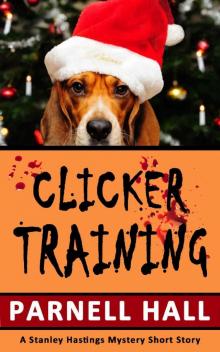 Clicker Training
Clicker Training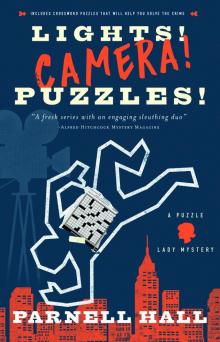 Lights! Camera! Puzzles!
Lights! Camera! Puzzles!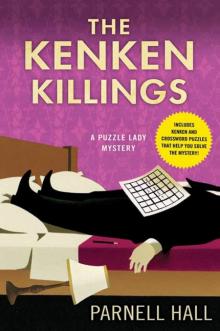 The KenKen Killings
The KenKen Killings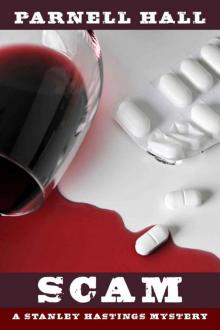 12-Scam
12-Scam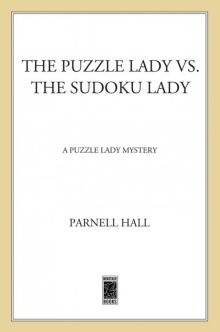 The Puzzle Lady vs. the Sudoku Lady
The Puzzle Lady vs. the Sudoku Lady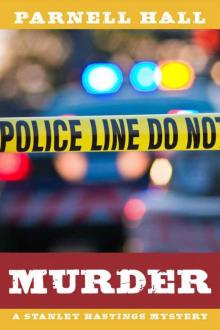 2 Murder
2 Murder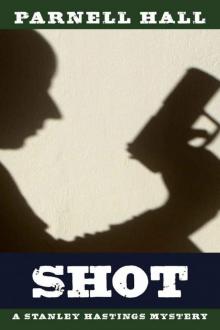 7 Shot
7 Shot You Have the Right to Remain Puzzled
You Have the Right to Remain Puzzled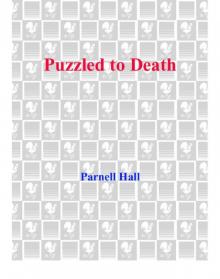 Puzzled to Death
Puzzled to Death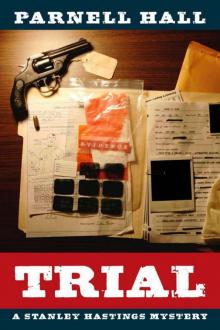 11-Trial
11-Trial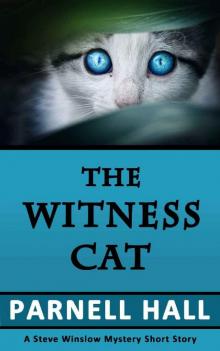 The Witness Cat (Steve Winslow Mystery)
The Witness Cat (Steve Winslow Mystery)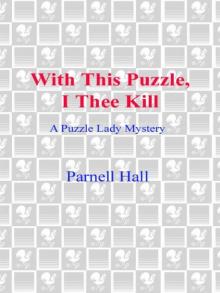 With This Puzzle, I Thee Kill
With This Puzzle, I Thee Kill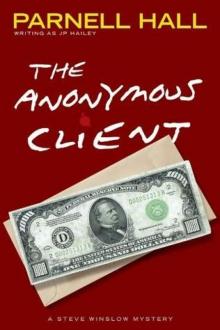 The Anonymous Client sw-2
The Anonymous Client sw-2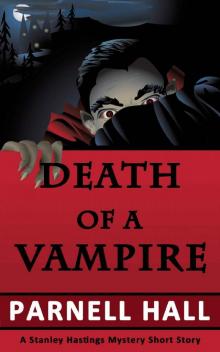 Death of a Vampire (Stanley Hastings Mystery, A Short Story)
Death of a Vampire (Stanley Hastings Mystery, A Short Story)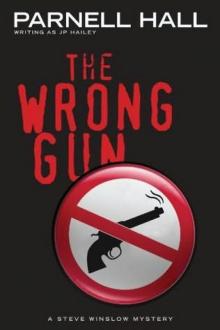 The Wrong Gun sw-5
The Wrong Gun sw-5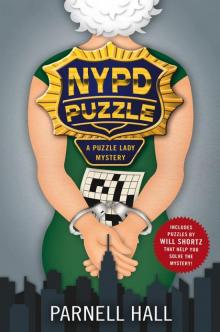 NYPD Puzzle
NYPD Puzzle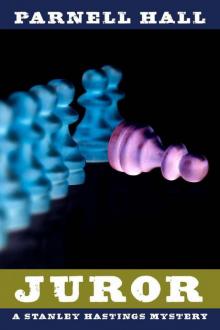 6 Juror
6 Juror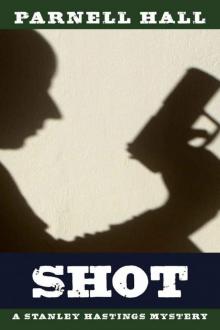 07-Shot
07-Shot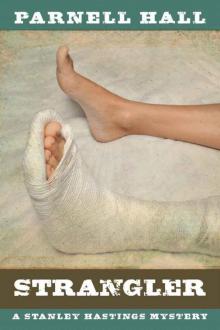 04-Strangler
04-Strangler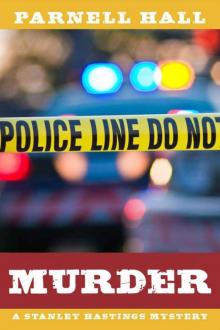 02-Murder
02-Murder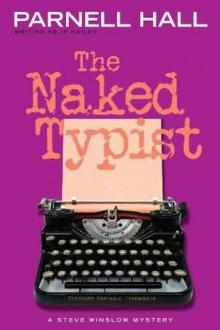 SW04 - The Naked Typist
SW04 - The Naked Typist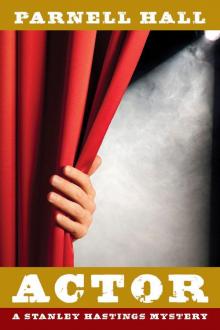 Actor
Actor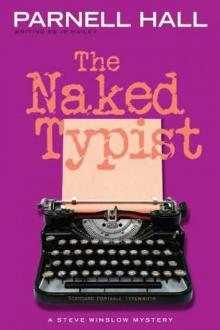 The Naked Typist sw-4
The Naked Typist sw-4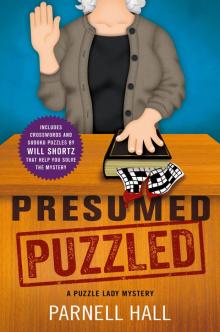 Presumed Puzzled
Presumed Puzzled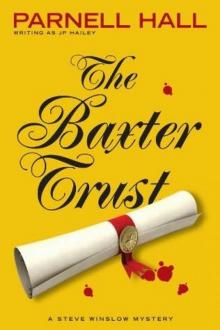 SW01 - The Baxter Trust
SW01 - The Baxter Trust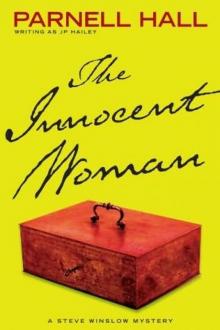 SW06 - The Innocent Woman
SW06 - The Innocent Woman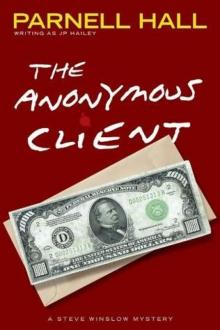 SW02 - The Anonymous Client
SW02 - The Anonymous Client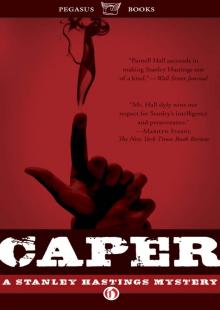 Caper
Caper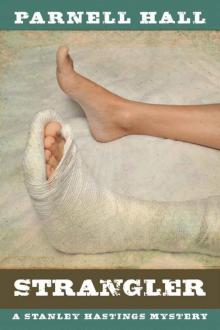 4 Strangler
4 Strangler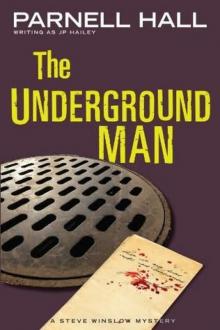 The Underground Man sw-3
The Underground Man sw-3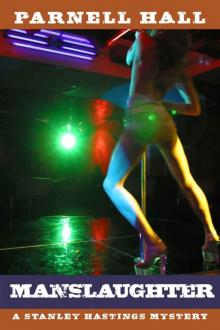 Manslaughter (Stanley Hastings Mystery, #15)
Manslaughter (Stanley Hastings Mystery, #15)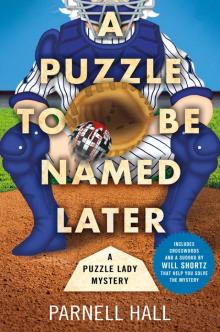 A Puzzle to Be Named Later--A Puzzle Lady Mystery
A Puzzle to Be Named Later--A Puzzle Lady Mystery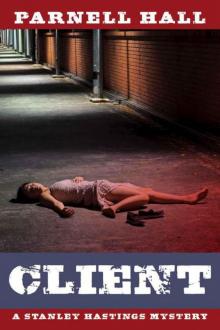 05-Client
05-Client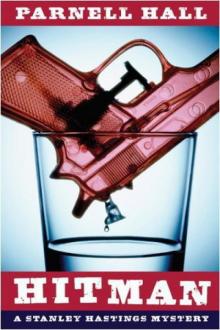 16 Hitman
16 Hitman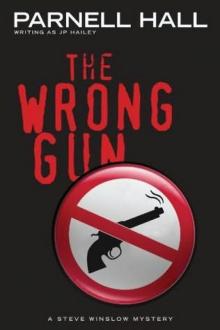 SW05 - The Wrong Gun
SW05 - The Wrong Gun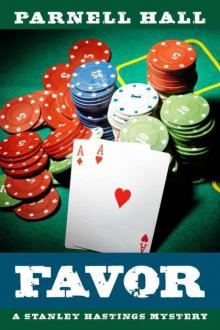 3 Favor
3 Favor Last Puzzle & Testament
Last Puzzle & Testament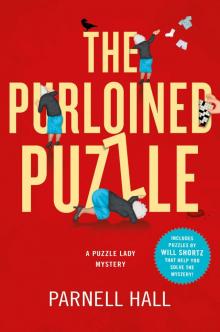 The Purloined Puzzle
The Purloined Puzzle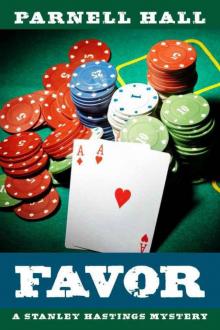 03-Favor
03-Favor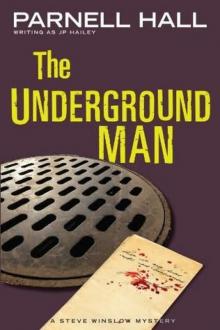 SW03 -The Underground Man
SW03 -The Underground Man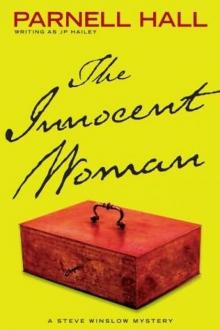 The Innocent Woman sw-6
The Innocent Woman sw-6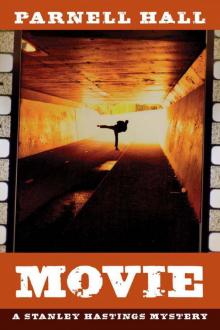 10 Movie
10 Movie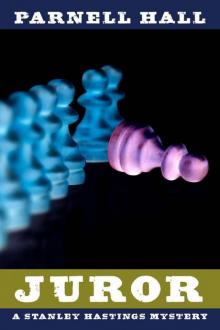 06-Juror
06-Juror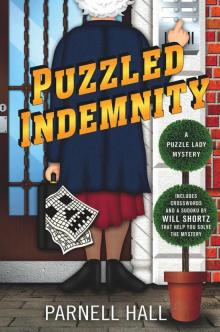 Puzzled Indemnity
Puzzled Indemnity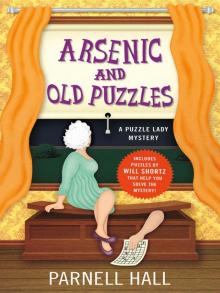 Arsenic and Old Puzzles
Arsenic and Old Puzzles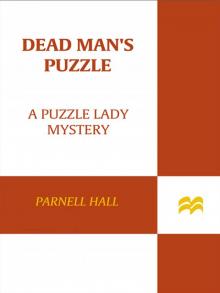 Dead Man's Puzzle
Dead Man's Puzzle Safari
Safari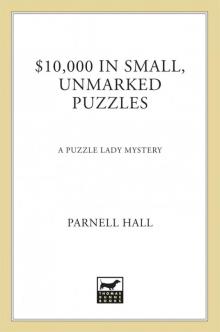 $10,000 in Small, Unmarked Puzzles
$10,000 in Small, Unmarked Puzzles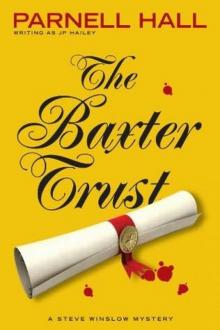 The Baxter Trust sw-1
The Baxter Trust sw-1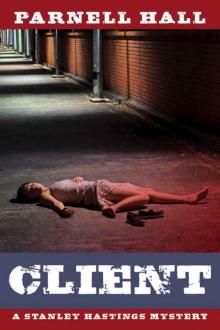 5 Client
5 Client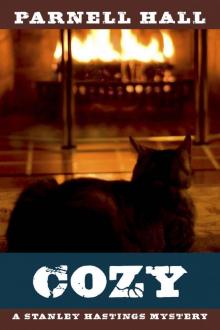 Cozy (Stanley Hastings Mystery, #14)
Cozy (Stanley Hastings Mystery, #14)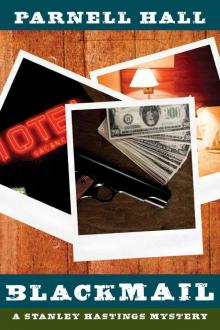 Blackmail
Blackmail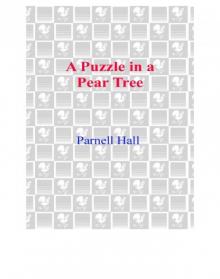 A Puzzle in a Pear Tree
A Puzzle in a Pear Tree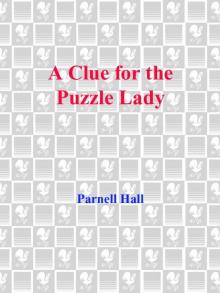 A Clue for the Puzzle Lady
A Clue for the Puzzle Lady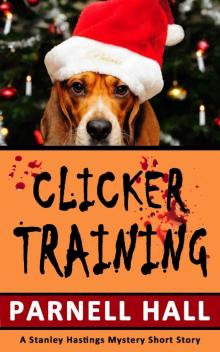 Clicker Training (Stanley Hastings Mystery, A Short Story)
Clicker Training (Stanley Hastings Mystery, A Short Story)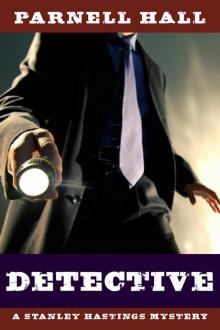 Detective (Stanley Hastings Mystery Book 1)
Detective (Stanley Hastings Mystery Book 1)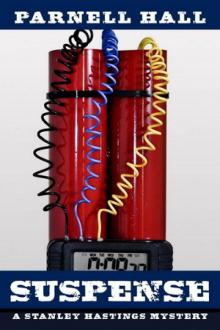 13 Suspense
13 Suspense